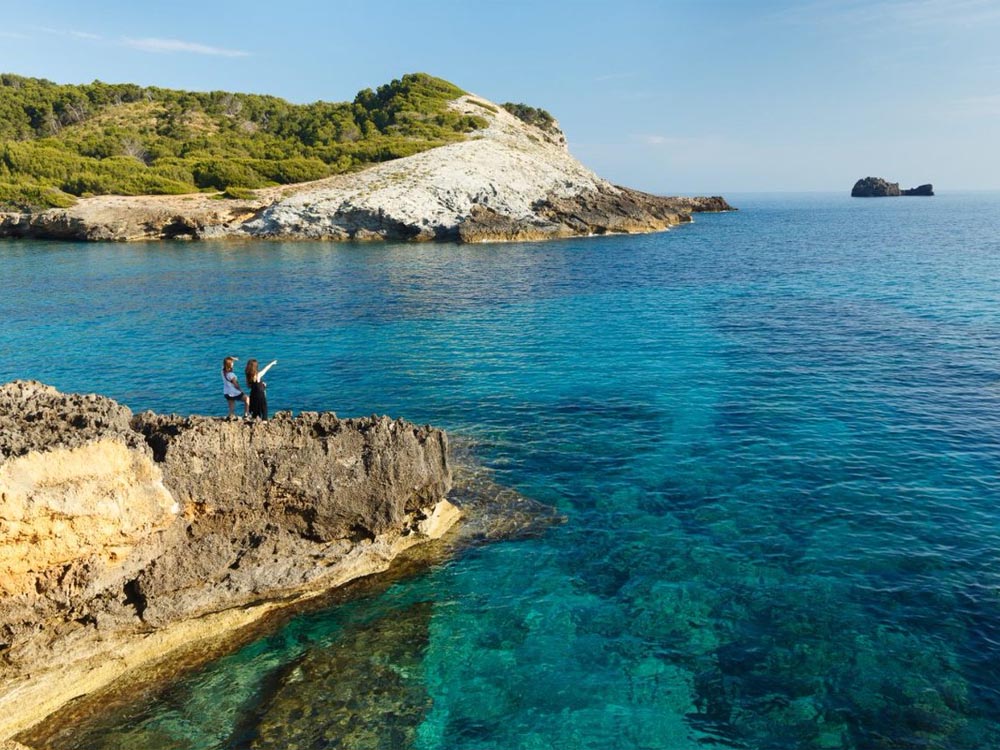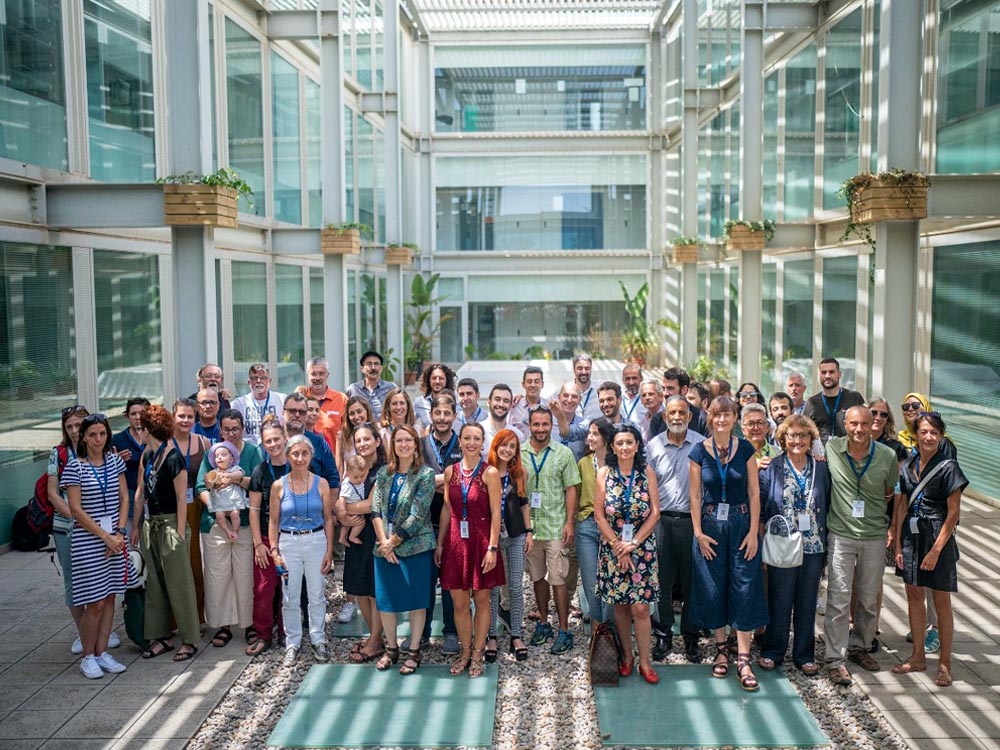MPA-Engage
Engaging Mediterranean key actors in Ecosystem Approach to manage Marine Protected Areas to face Climate ChangeProject presentation
Climate change is dramatically affecting the Mediterranean Sea, which is warming at a rate 20% faster than the world’s average. Marine Protected Areas (MPAs), despite the nature-based solution they offer to support efforts towards climate change adaptation and mitigation, are the first ones to feel the climate change effects. Several Mediterranean MPAs are already facing major biodiversity and functional alterations due to climate change, whereas others will likely face them in the next few decades. There is, therefore, an urgency to mitigate these risks and to consider adaptation options in partnership with local communities, decision-makers, civil society organizations, research bodies, and other socio-economic actors at local, national and regional level.
MPA-ENGAGE is an Interreg Med funded project aiming to support MPA managers to adapt to and mitigate the ongoing climate change effects in the Mediterranean Sea. Through a participatory approach, MPA-Engage monitor in a harmonized way the climate change impacts, elaborate vulnerability assessments and develop climate change adaptation action plans in Mediterranean MPAs.
Partnership
Lead partner
Spanish National Research Council (CSIC) - Institute of Marine Sciences (Spain)
13 Partners
31 Associated partner
8 Pilot sites
14 Countries
Key messages
For policy
- Marine Protected Areas (MPAs), despite the nature-based solution they offer to support efforts towards climate change adaptation and mitigation, are the first ones to feel the climate change effects. Several Mediterranean MPAs are already facing major biodiversity and functional alterations due to climate change, whereas others will likely face them in the next few decades. There is, therefore, an urgency to mitigate these risks and to consider adaptation options in partnership with local communities, decision-makers, civil society organizations, research bodies, and other socio-economic actors at local, national and regional level;
-
Mediterranean MPAs as long-term designations can play a primary role in providing a systematic and harmonized observation system, translating principles already consolidated in the political framework, to the real world. The resulting outputs are key information to support mitigation strategies and effective adaptation plans;
-
The guiding principles and architecture of MPA ENGAGE Standard Protocols respond to the requirements of the Ecosystem Approach undertaken under the auspices of UNEP/MAP Barcelona Convention, with the ultimate objective of achieving the Good Environmental Status (GES) of the Mediterranean Sea and Coasts.
For science
- Adaptive planning requires specific arrangements for evaluating Climate Change impacts. Through MPA ENGAGE 8 Mediterranean MPAs have joined a common and collaborative monitoring effort based on a series of standard protocols. MPAs work together for the same goals, adding value to existing monitoring practices and building a common and consolidated strategy to track climate change effects in the Mediterranean area;
- MPA ENGAGE has developed and applied standard as a practical guidance to track climate-related impacts in Mediterranean Marine Protected Areas (MPAs) and beyond. Technically these tools are inspired to the concept of Essential Climate Variables and focus on a restricted set of simple measurements to capture greater dimensions of environmental change. Indicators have been chosen on the basis of their scientific relevance, feasibility and cost effectiveness;
- The engagement of local stakeholders is another key ingredient in some of these methodologies. Adopting these protocols, allow participants to join to a common and consolidated strategy to track climate change effects. This will improve, complement or extend the ongoing monitoring initiatives in the different Mediterranean countries.





